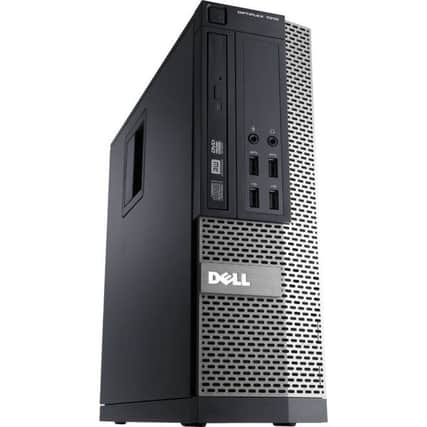Make your next PC someone else's


But the pace of change is so fast that even a two-year-old computer is likely to be significantly faster than faster than your old one, and the prospect of getting one at around a third of the normal cost is not to be sniffed at.
There is a healthy market right now in PCs that have been leased in bulk to large corporations and which have come back on to the market via firms that specialise in refurbishing them. The principle is the same as with fleet cars where the lessee is entitled to an upgrade every two or three years, but with fewer outward signs of wear and tear.
Advertisement
Hide AdAdvertisement
Hide AdThere are so many of these machines are knocking about, nearly all from large-scale manufacturers like Dell, HP and the Chinese maker Lenovo, that even big-box sellers like Amazon have started to shift them, with a department devoted entirely to refurbished stock.
Amazon also deals in second-user iPhones, laptops and other consumer electronics, but they, unlike PCs, are tactile; they don’t have the feel of new products. Desktops, on the other hand, are seldom touched, and with a new keyboard and mouse, you’d scarcely know that they had once been someone else’s.
A decently-specified computer with a reasonably up-to-date Intel Core i5 professor, eight gigabytes of memory and Windows 10 pre-installed would cost around £400 on the high street right now, but a little over £150 on the refurbished market. Lesser machines on sale for as little as £68 including Windows 10, may still be better specified than your old one.
The refurbishing process strips the hard disks clean so there’s no risk of stumbling upon someone else’s old data. However, the disks themselves are often smaller than those on retail PCs. That’s because fleet PC buyers, conscious that their staffs have little business need for vast amounts of storage, have moved en masse to quieter, faster but less capacious solid state drives. You can spot these in the PC’s description by the designation SSD, rather than HDD.
Advertisement
Hide AdAdvertisement
Hide AdDon’t let the relatively small disk size put you off – you can add a whole terabyte of portable storage to any PC for a little less than £40.
As for the boxes themselves, the trend among fleet buyers is for “small form factor” units that take up considerably less room on or under your desk than traditional mini towers. These have limited room inside for adding additional components later – a separate graphics card, for instance – but if that’s not something you plan to do, don’t give it a second thought.
As with any PC purchase, check the description carefully to make sure you’re getting what you need. A DVD drive is usually, though not necessarily, included, but wi-fi connectivity is not a given. If you need to add this, plug-in adaptors start from £10.
Amazon is by no means the only supplier of refurbished fleet stock. Dell and HP have their own clearance websites, and the asset management company Tier1, which sources the machines in the first place, has an online outlet specialising in their redistribution. In all cases, you can be reasonably confident of getting a reliable and easy-to-service machine that has in all probability been built to a higher standard than many a retail model.